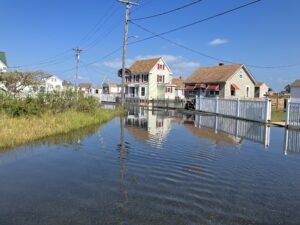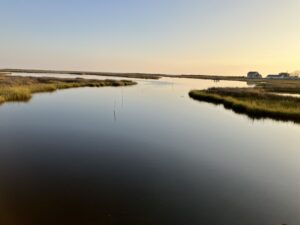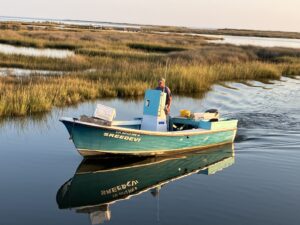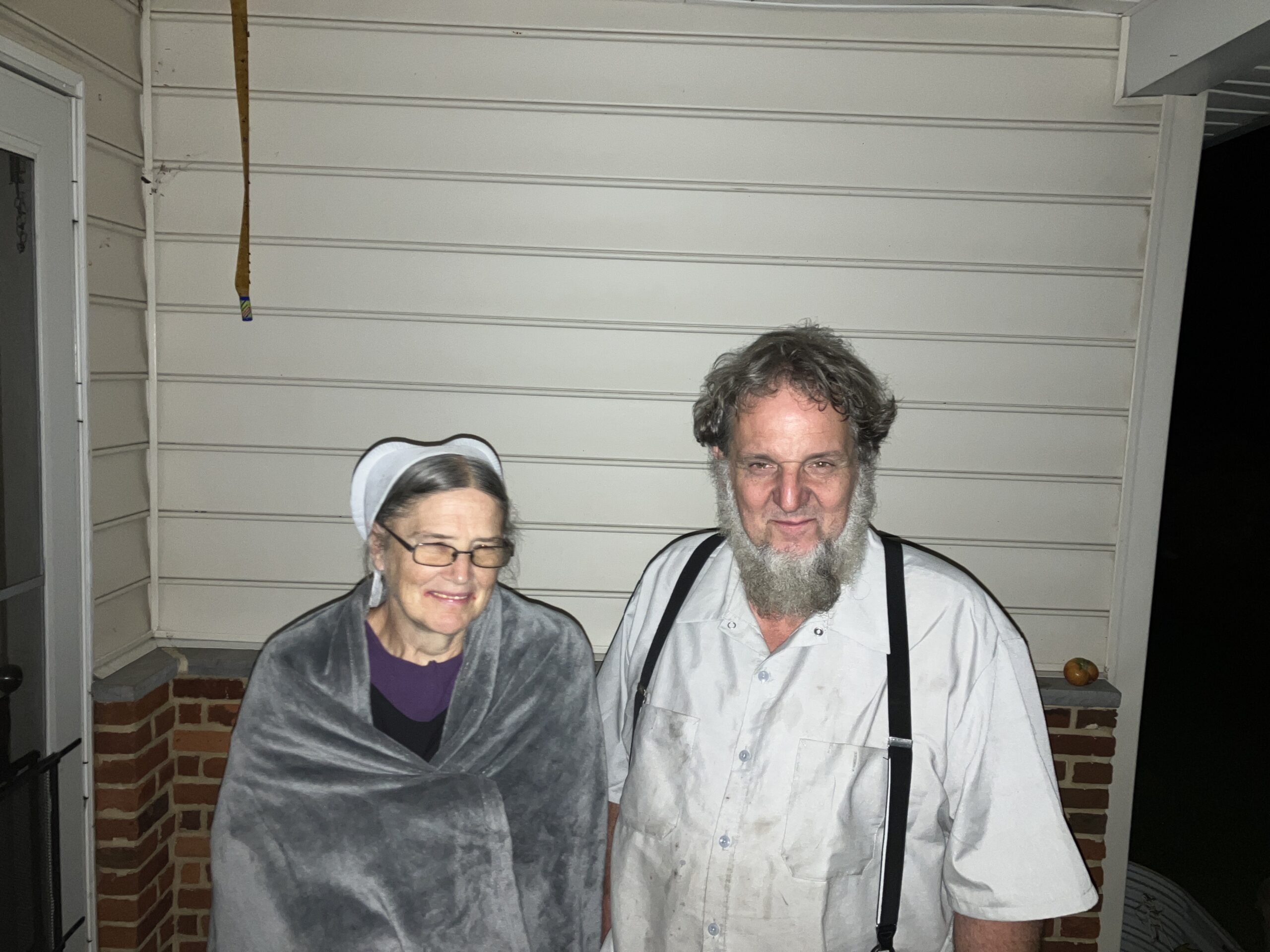 It is high tide in mid-afternoon, and a full moon high at that, when I get to tiny Tangier Island, a 45 minute boat ride from the Maryland and Virginia Eastern Shore. The paved trails that traverse the island are covered in places with a few inches of water that creeps out of the salt marshes on all sides. Small bait fish glitter along the edge of the roadways that are just wide enough for two golf carts to pass each other. Songbirds fill the trees and peck around on the grass. The houses are a complete mix, from abandoned and becoming one with the marsh, to as cute as a summer cottage on Cape Cod. Backyards and some front yards will be under water until late this afternoon.
It is high tide in mid-afternoon, and a full moon high at that, when I get to tiny Tangier Island, a 45 minute boat ride from the Maryland and Virginia Eastern Shore. The paved trails that traverse the island are covered in places with a few inches of water that creeps out of the salt marshes on all sides. Small bait fish glitter along the edge of the roadways that are just wide enough for two golf carts to pass each other. Songbirds fill the trees and peck around on the grass. The houses are a complete mix, from abandoned and becoming one with the marsh, to as cute as a summer cottage on Cape Cod. Backyards and some front yards will be under water until late this afternoon.
The average height above sea level of Tangier Island is six feet. Most of the homes are on ground only a few feet, if that, above mean high tide. Nearly every home has it’s own small cemetery, a handful of family names carved in headstones over and over. The original settling families came in the 1600’s and stayed. The dialect here is darn hard to understand.
Tangier has lost about two thirds of its area in the last 150 years to a combination of subsidence, sea level rise, and increasingly strong storms that erode the edges of the island. The dwindling clan of Tangier residents have begged the state of Virginia or the feds to dump rock along the shorelines, or build a small sea wall to preserve the town and its unique culture. Instead of starting on the seawall, Tangier gets promises from politicians and another study which, while thick, does little to stand against the tide.
 Rob Baechtel, who owns the one hotel on Tangier Island with his wife, Barb.
Rob Baechtel, who owns the one hotel on Tangier Island with his wife, Barb.
“The monarch butterflies should be migrating through in a few days. The rockfish are starting to come into the creeks for winter. There are porpoise and dolphins often down off the beach. We get all kinds of waterfowl coming through here. We have peregrines and ospreys nesting. Eight and ten year old kids take their little skiffs out all over the island. Right now there are so many crabs they don’t use a line and chicken bone; they just rake them up. And the kids go out with their parents and work the crab pots or oyster beds. The kids are learning the skills of how to be watermen, just like their parents did.”
 Ooker Eskridge, has been mayor of Tangier for 15 years; he has lived here is entire life and is a waterman (one who gathers crabs, oysters, and other resources from the Chesapeake Bay). He proudly wears a Get On the Trump Train t-shirt.
Ooker Eskridge, has been mayor of Tangier for 15 years; he has lived here is entire life and is a waterman (one who gathers crabs, oysters, and other resources from the Chesapeake Bay). He proudly wears a Get On the Trump Train t-shirt.
“Since Donald Trump called, the media from 43 countries have called and 99% have been very liberal. They ask, ‘Can we come?’ I say, ‘Sure’. They say, ‘Can we talk?’ I say, ‘Sure. You can voice your ideas and opinions and I’ll voice mine.’ We’re probably not gonna change our minds, we can have different opinions, but still be civil with each other.’ There’s people who are condemning other people, because of what they believe. How can we help people get past that and get back to the point where we can be civil with each other?”
“This is a religious community. If you don’t know what the Bible says about Latter Days, then this is all a mystery to people. This was prophesied thousands of years ago and we happen to be living it. In the book of Daniel, it says what used to be considered right will be considered wrong, and what was used to be wrong will be called right. Some people have said, well, if the world’s gonna end, don’t worry about it all. But the Bible says that you continue on with life, helping people and preserving the environment or whatever. Even if the end is close, you don’t stop what you’re doing.”
“I think about hope a lot. I don’t know if we can come back. I don’t want to feel that way, to say there’s no hope of coming back. Because if you lose hope, it’s a bad place to be. If people are living a life of hopelessness, they have nothing. You don’t want to feel that way.”



Leave A Comment